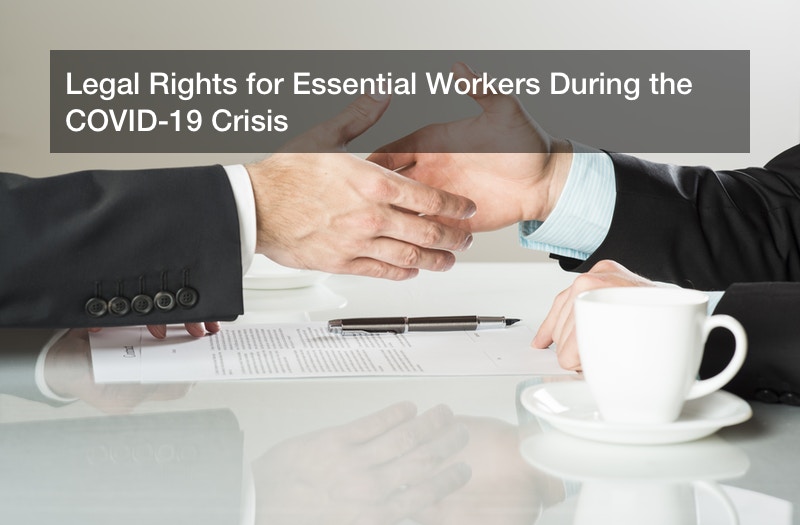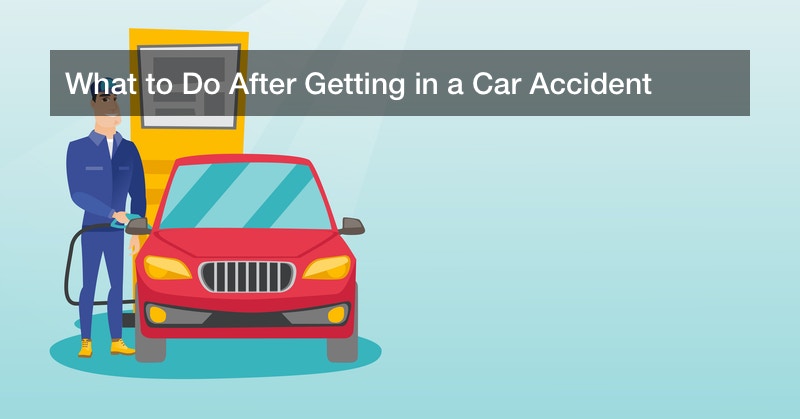
COVID-19 has divided the workforce in the United States into two groups. The “essential worker” and the “non-essential worker.” Of course, like everything else that has anything to do with COVID-19 there is still some confusion as to what exactly is considered an essential.
There are some essential workers positions that are obviously essential like doctors, but there are other essential workers that are a little harder to understand. For example, roofing contractors, may not initially, seem essential, but a closer look reveals that they can be classified as such.
When the Decision Is Being Made For You

Clearly there are some professions that are absolutely necessary to battle the COVID-19 outbreak like medical professionals, but what if you are not a medical professional, yet your boss has deemed you an essential worker?
For example, you are a janitor in one of the many senior living communities, or you work in a dentists office as a receptionist, do you still have to show up for work? The answer is yes and no. If you are tagged an essential worker by your employer, not going to work can wind up getting you fired. If you believe that your health is at risk, then you may decide to just not show up, and fight the battle at a later time.
Having to go to work when other co-workers are able to work from home may not seem like a very fair situation. A lot of people feel like it defeats the purpose of having these mass quarantines when they are still required to provide pest control services and other services where they will come in contact with people.
A lot of essential workers have been wondering exactly how essential they are and what types of protections are in place for them. The goal of any business owner should be to keep your business safe by protecting your employees. It is actually your employer’s responsibility to ensure that you are protected.
What If My Boss Deemed Me Essential But I Do Not Think I Am?

The simplest way to figure out if your newly found designation as an essential employee is fact-based or not is to ask yourself a few questions. What industry are you in? Do you provide an essential service? Can you do your job remotely?
Let’s define what essential services are (keep in mind the definition may vary by state, you may want to check with yours):
- Any store that sells food. If you work in a grocery store you are essential. If you work for a shipping concern, your job is essential.
- Gas stations are essential. If you work in a gas station, a gas delivery company, or anywhere in that supply chain your services are considered essential.
- If you work in any industry that supplies, manufactures or ships medical equipment you are considered essential.
Home health care workers are essential, construction workers, car repair shop employees, are all essential. There is a long list of service providers that are also essential like electric linemen, cable installers and repairmen, and more.
Your job may be far more important than you thought it was during the pandemic. You do not need to be in emergency medicine to be essential workers.If you are in doubt you can always check with a labor attorney or the Department of Labor in your state. In most cases, employers have been very good about sending the workers home that they could to work remotely.
What Happens If I am Essential Worker And I Do Not Show Up?

Everyone has to do what is right for them, but you should understand that you will likely deal with some unwanted consequences if you simply stop showing up to work. If you do not show up for work your employer can and likely will fire you. There is no law preventing your employer from firing you for not showing up to work.
If you quit your job because of COVID 19 fears, you may not be able to collect unemployment. On the other hand, if you have been exposed to a person that has tested positive for COVID 19, stay home and let your boss know that you have to quarantine for 14 days.
Being afraid of contracting COVID 19 when you are in a listed as an essential worker is not reason enough to not go to work. It is important that you understand your rights as a COVID-19 essential worker.
If I Have to Be Quarantined Does My Employer Have to Pay Me?
If you come into contact with someone that has tested positive for COVID 19 you are required to self-quarantine for full 14 days. A lot of essential workers have the same question about having to take time off.
The biggest question is who will pay for that time. Will you have to take your vacation days, sick days and other PTO, or, does your employer keep paying you? The answer is that it all depends on your employer’s policy.
The new COVID 19 legislation that passed will generously compensate small business owners (with less than 500) employees if they pay their employees while they are quarantined. The law also put in place will penalize small business owners that do not.
If you have been exposed, you need to quarantine yourself, and then document what is happening via email with your employer. Essential workers are already taking a risk if you are sick stay home. In the event, you do not have any paid time off, and your employer is not going to pay you, there may be programs in your state to help you bridge the gap.
What If I am Out of Paid Time Off and My Employer Will Not Pay me For Quarantine Days?
The new COVID 19 laws have some laws covering FMLA (family medical leave) if you cannot work as a direct result of exposure to or caring for someone with COVID 19, however they do not apply to all businesses. Speak with a labor lawyer to learn more about your rights in this matter.
Your employer may have to be compelled to pay you through a formal complaint with the right agency. The best thing you can do, is to keep good records about the incident and be sure that you communicate in writing.
In the meantime apply for unemployment benefits and list COVID 19 as the reason you are out of work. Staying home is the right thing to do.
My Employer Has Banned Employees From Wearing Rubber Gloves and Masks

A few grocery stores have banned employees from wearing rubber gloves and masks. If it is your company policy, there is not much you can do about it right now. However, be sure to document your disagreement with this policy, because down the road new laws may offer protections for workers that wanted PPE and could not use it.
Does My Employer Have to Provide Me With Protective Gear?
You have likely heard that acronym PPE for personal protective equipment thousands of times over the last few weeks. Emergency care workers are currently dealing with a shortage of PPE across the country.
Emergency medicine physicians from across the US have been on news shows pleading for people to donate any type of PPE that they can get their hands on. You may be wondering if your employer is required by law to provide you with your own PPE to help keep you safe.
While there are no laws that currently say that your employer has to provide you with PPE unless of course your business is crime scene cleanup and it is a part of your normal “uniform” for work they should. Of course, if you want PPE, and you want your employer to foot the bill, the best thing to do is ask. Ask in an email. It is always good to have a paper trail of any requests you make.
I Am An Essential Worker And My Employer Just Cut My Hours By Half? What Can I Do?
If your employer has cut your hours and cut your pay along with it, then you can apply for unemployment insurance. In some states, before the COVID 19 law was passed, you could not collect unemployment, but now you can in every state.
What Other Changes to Unemployment Have Their Been?
The COVID 19 Unemployment Benefits have changed quite a few things for workers. For example, if you are a contract worker (you get a 1099 instead of a W2) you can now file for unemployment. While you may still not be eligible for unemployment from your state, filing with your state can mean a $600 a week check from the federal government.
Let’s say you are already getting unemployment through your state, you will now get the payment from the state and the $600 payment on top of whatever you get from the state. The payments are supposed to start for the week ending April 4, 2020.
At this time states are scrambling to institute the technology to manage the changes. Another change is how long workers will be able to collect benefits. For example, that $600 a week payment will run from the week of April 4, 2020, through July 31, 2020.
The amount of time that you can collect unemployment has also been extended in many states as well. You can find more information about your particular state’s unemployment program on your state’s website.
The best place to apply for unemployment is online. Many states have stopped seeing customers face to face. Phone hold times can be hours long. Apply online, then expect to get payment about 14 days after you apply in most states.
Does My Employer Have to Rehire Me After COVID 19
If you have been laid off because of COVID 19 even though you were considered one of the essential workers, there is a good chance that your job will be waiting for you when this all blows over, likewise, there is a chance that it won’t. Right now looking for a new job is not really a very practical idea.

There is little retribution that you can take if your employer simply does not have the money to keep the doors open. However, you can apply for unemployment benefits, and work with your states employment agency to find a new position if need be.
This is a highly uncertain time for everyone. No one knows where we will be a month or two months from now. This temporary hiatus from work may be just that.
If You are One of the Essential Workers Do These Things To Protect Yourself
Even if you are an essential worker, like those who staff senior living communities, you have the right to refuse to perform certain duties given the nature of the COVID 19 situation. For example, if your employer wants to ignore the call to enforce social distancing by not setting up a system to ensure the store does not become overcrowded, you can report them.
If your employment takes you into other people’s homes and you are just not comfortable doing that, you can sit out the call, and let your supervisor know in writing why you cannot go on the call. If you are in a high-risk group, your health has to be a priority.
Keep yourself safe by:
- Disinfect the surfaces that you come into contact with at work. Counters, doorknobs, and other areas should be wiped down before you start using them.
- Wash your hands often and keep them away from your face.
- Practice social distancing every step of the day.
There are a lot of working parts that will go into stopping the spread of the virus, and each person has to do theirs. The essential workers are keeping this country going, each and every one of the essential workers is vital to keeping our country afloat. Take care of yourself so you can be a part of the solution.
Medical professionals and essential workers do have rights. If you need help with a situation that you believe is not legal at your workplace the best place to get answers is from a labor lawyer that specializes in workplace rights. There is help available.



